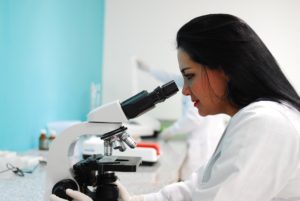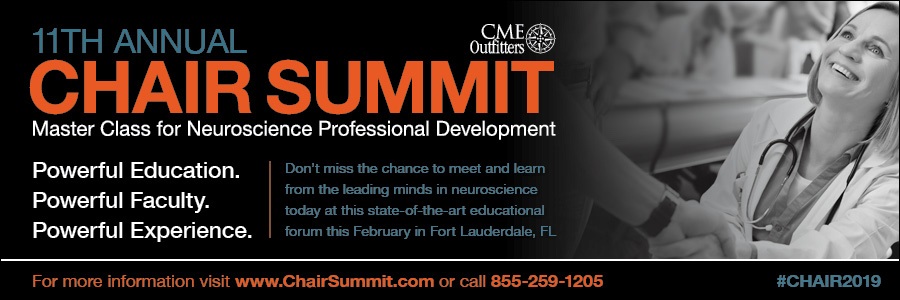
Dr. Mark Gold’s Research You Can Use
Warren Bickel, the director of the Virginia Tech Carilion Research Institute (VTCRI) Addiction Recovery Research Center, and Keith Humphreys, the Esther Ting Memorial Professor in psychiatry and behavioral science at Stanford University, have called attention and action in an article published in JAMA Psychiatry, a journal of the American Medical Association, toward neuroscience research on long-term recovery from addiction.
More than 25 million Americans smoke cigarettes, and more than 20 million people are categorically struggling with substance abuse disorders. This has resultingly increased mortality and morbidity not just for the abusers themselves, but also for others in terms of infectious diseases, accidents under the influence and substance-induced violence. Yet, the silver lining remains to be the 25 million Americans who have been in addiction recovery for years or even decades.
Why is neuroscience of long-term recovery from addiction important?
Addiction is not just a neuronal phenomenon. It unavoidably involves a continuous dynamic interaction between the patient, their behavior and the environment. Every case of addiction is different and along with it brings varying precursors, repercussions ad recovery process based on the different drugs, their effects, and the person. Neuroadaptation, however, remains largely constant across addictions. This means the trends of urges to use, development of a physical tolerance, diminished self-control and restricted enjoyment of natural stimulators remain identical.
Four distinct benefits can be acknowledged by fully understanding the workings of these neuroadaptations as discussed below.
1. Helping clinicians plan and provide care. Clinicians have several ways of monitoring the consumption of a substance, yet they cannot directly or accurately observe recovery from addiction. Even though all patients abstaining from substances in an entire 28-day inpatient treatment program seem behaviorally identical, their outcomes post-discharge vary greatly.
Some relapse on the very day of discharge, some continue on to become lifetime abstainers and all patients post-discharge end on the spectrum between these two extremes. This is where neuroscience methods could supply useful information regarding the efficacy of a treatment program and how well is it actually working.

This would allow clinicians to effectively determine which patients can be safely discharged and which require further long-term treatment.
Despite the fact that several studies have highlighted numerous probable prognostic neurological markers of rapid relapse post-treatment, expanded neuroscience of recovery could help caregivers curate care packages that facilitate patients’ short-term clinical gains into long-term recovery.
2. Telling patients and families on what to expect. Addiction is a chronic, complex disease just like cancer. Yet, how doctors are able to give an accurate developmental prognosis to cancer patients, this is still currently not possible for addiction. It could, however, become so with the availability of neuroscientific data on patients’ degree of gradual recovery. This also helps regulate the expectation of families and friends, simultaneously preparing them for the safety through a relapse of their loved ones.
3. Informing public policy on addiction. There have been many public policy decisions regarding the opioid epidemic and addiction devoid of any strong or relevant scientific background. There are important public policy decisions to be undertaken such as how extensive should an addiction treatment be mandated to facilitate recovery and maintain it long term, how the legal system can ensure the safety of long-abstinent inmates and how long an individual be sober to have their license restored. A neuroscience of addiction recovery could provide substantial input in making these and many other public policy decisions in a more objective manner.
4. Strengthening knowledge about the brain, its acquired dysfunctions, and healing process. Sufficient evidence indicates that generic neuroadaptation processes of learning and memory are clearly implicated by addiction. Getting to know more about the neuroadaptation processes included in long-term addiction recovery can consequently highlight the relevant brain function associated with a broad range of behavioral development.
A key question regarding treatment and recovery is whether the brain changes resulting from substance abuse are restorable, compensatory, or both. For instance, recovering alcoholics go through restitutive changes like reduced compromise of regional white matter fibers and compensatory modifications such as reorganization in the prefrontal cortex that inhibits the effect of persistent alcohol-induced abnormalities in other brain regions. Such findings can prove to be extremely valuable and have the potential to generalize to other psychiatric disorders.
“Understanding long-term recovery is important for science and for society,” Keith Humphreys said. “For science, unraveling the nature and treatment for medical disorders requires us to understand both the cause of disease, the course it takes, and the recovery—but in the addiction field, we have focused almost entirely on the first two. For society, while many people understandable despair over the horrors of the opioid epidemic, the reality of recovery gives us hope that happy and healthy lives are possible for those currently suffering.”
Advancing neuroscience of long-term recovery
 There already exist effective models for studying the recovery of health.
There already exist effective models for studying the recovery of health.
Such work can be accomplished by putting together a consortium of researchers from all over the world who could monitor magnanimous cohorts of participants.
An example of this is the National Institute on Drug Abuse supporting Adolescent Brain Cognitive Development study which is currently monitoring around 10,000 preadolescents, some of which will eventually develop substance use disorders. Similarly, a recovery-focused coalition could surveil changes at predetermined intervals in addicted patients in recovery.
Numerous neuroscientific theories of addiction could come into play here to shape up the scientific question for such a consortium to explore. Some important questions pertain to how recovery is categorized, whether through compensatory or restitutive modifications in the brain and whether such changes are relevant to other disorders or even more general processes.
An advance in neuroscience of recovery should also focus upon the neurobehavioral processes that have previously been hypothesized to serve as an indicator of addiction in its entirety. These include temporal discounting, stress tolerance, executive function, and negative effect.
Bickel appraised the International Quit and Recovery Registry (IQRR) as an essential research tool to advance the understanding of long-term recovery. The IQRR is comprised of nearly 8000 registrants from all 50 states, 40 countries, and five continents. The recovery times observed for these registrants range from less than a year to up to almost two decades. Eighty-three percent of the registrants reported two or more substances as their addiction of choice. Being one of a kind, the IQRR registry is illuminating circumstances resulting in addiction, choices leading to recovery and the social and cultural environments presented to the recovering.
“There’s a clear need for advancement in our knowledge of recovery processes. We need more information—basic information—about how the brain functions and heals during recovery,” Bickel said. “Increasing the number of neuroscience studies and including longitudinal designs to understand how a person’s brain changes after a few years or a few decades in recovery could have substantial clinical, scholarly, and public policy benefits.”
Addiction recovery is possible as proven by so many successfully treated or recovering people But, so much is not known. Bickel and Humphreys aim to continue addressing the questions they highlighted in their article, in hopes of garnering more neuroscience research focused on long-term recovery from addiction.
References:
- https://jamanetwork.com/journals/jamapsychiatry/article-abstract/2681171
- https://www.ncbi.nlm.nih.gov/pubmed/29847627
https://medicalxpress.com/news/2018-09-addiction-experts-neuroscience-long-term-recovery.html
About the Author:
 Mark S. Gold, M.D. served as Professor, the Donald Dizney Eminent Scholar, Distinguished Professor and Chair of Psychiatry from 1990-2014. Dr. Gold was the first Faculty from the College of Medicine to be selected as a University-wide Distinguished Alumni Professor and served as the 17th University of Florida’s Distinguished Alumni Professor.
Mark S. Gold, M.D. served as Professor, the Donald Dizney Eminent Scholar, Distinguished Professor and Chair of Psychiatry from 1990-2014. Dr. Gold was the first Faculty from the College of Medicine to be selected as a University-wide Distinguished Alumni Professor and served as the 17th University of Florida’s Distinguished Alumni Professor.
Learn more about Mark S. Gold, MD
About the Transcript Editor:
 A journalist and social media savvy content writer with extensive research, print and on-air interview skills, Sana Ahmed has previously worked as staff writer for a renowned rehabilitation institute, a content writer for a marketing agency, an editor for a business magazine and been an on-air news broadcaster.
A journalist and social media savvy content writer with extensive research, print and on-air interview skills, Sana Ahmed has previously worked as staff writer for a renowned rehabilitation institute, a content writer for a marketing agency, an editor for a business magazine and been an on-air news broadcaster.
Sana graduated with a Bachelors in Economics and Management from London School of Economics and began a career of research and writing right after. Her recent work has largely been focused upon mental health and addiction recovery.
The opinions and views of our guest contributors are shared to provide a broad perspective of addictions. These are not necessarily the views of Addiction Hope, but an effort to offer a discussion of various issues by different concerned individuals.
We at Addiction Hope understand that addictions result from multiple physical, emotional, environmental and genetic factors. If you or a loved one are suffering from an addiction, please know that there is hope for you, and seek immediate professional help.
Published on December 13, 2018
Reviewed by Jacquelyn Ekern, MS, LPC on December 13, 2018
Published on AddictionHope.com

